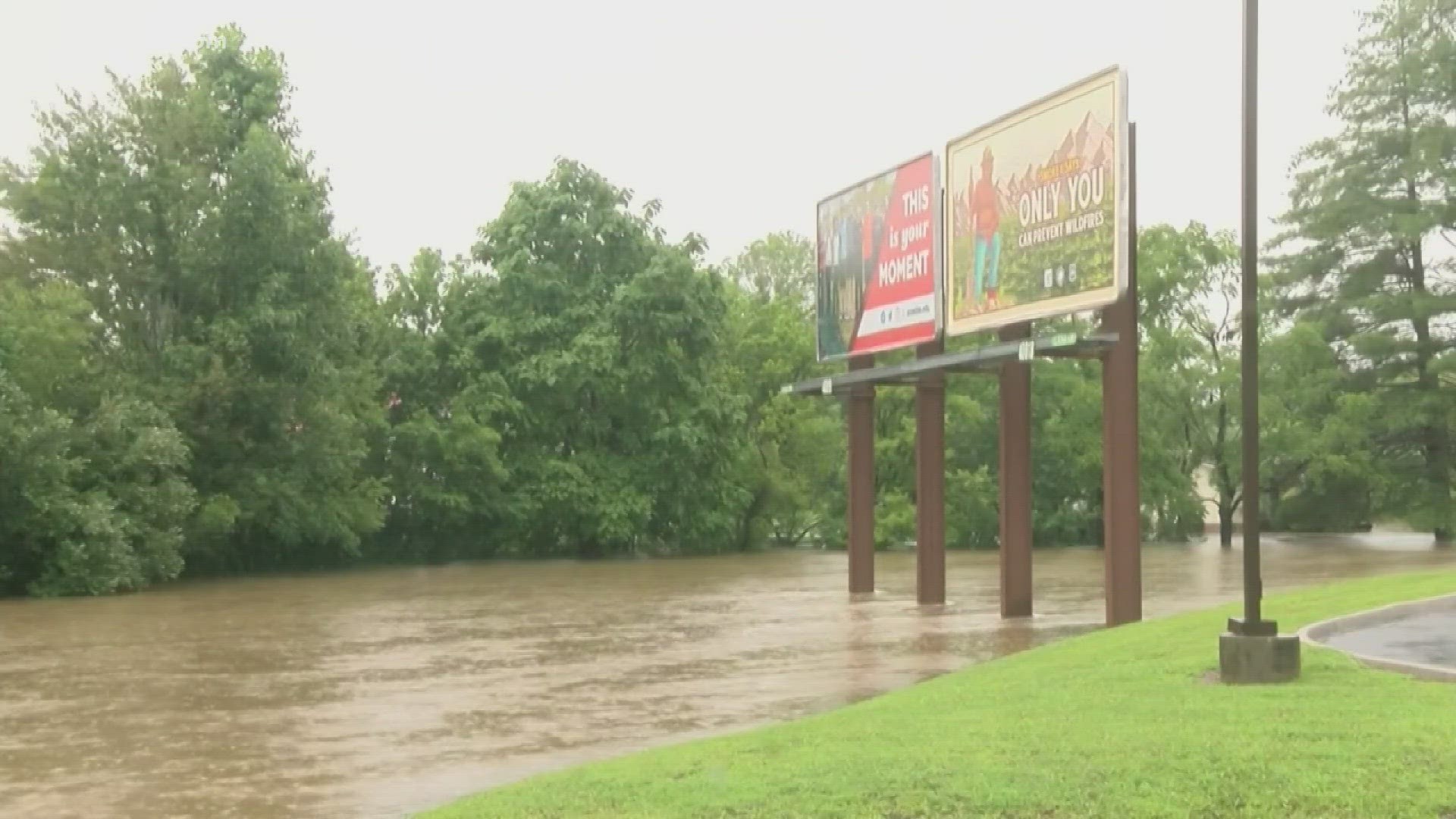NORFOLK, Va. — Of the $500 million conservation investment Gov. Glenn Youngkin proposed in his 2024 budget on Friday, the City of Norfolk would receive more than $73 million to mitigate flooding concerns in the coming years if passed.
The proposed $73.85 million directed to Norfolk would support the city's Coastal Storm Risk Management (CSRM) Project, which the U.S. Army Corps of Engineers assists with.
Through the project, Norfolk officials plan to develop natural storm mitigation techniques, structural barriers and property-specific, nonstructural improvements across the city. This will be accomplished through "a combination of levees, living shorelines, pump stations and sea walls, among other measures," according to city officials.
“Norfolk is bordered to its north, south and west by the Chesapeake Bay and Elizabeth River, giving us one of the highest rates of relative sea level rise among Atlantic coastal communities,” said Dr. Kenneth C. Alexander, Mayor of the City of Norfolk. “We recognize the challenges of living alongside these waters, yet we are proactively stepping up to face those challenges head on. I am grateful to Governor Youngkin and his administration for its dedication to this cause.”
In January 2022, the CSRM was approved under President Joe Biden's Bipartisan Infrastructure Law which included $400 million in federal funding. Earlier this year, the Virginia Department of Conservation and Recreation's Community Flood Preparedness Fund awarded the CSRM more than $24.6 million.
"As Virginians, we are blessed to be surrounded by an abundance of treasured natural resources," Youngkin said in a media release. "This investment delivers on my administration's steadfast commitment to ensure our natural resources are preserved for future Virginians to enjoy. We are prioritizing funding to further advance Chesapeake Bay goals, support vulnerable communities at risk of flooding, and bolster state parks."
In addition to combating flooding concerns, the funding would be utilized to improve water quality, enhance parks, dam safety, land preservation and habitat restoration.
"While directly targeting conservation and protection of our resources, this funding will play an indispensable role in catalyzing new job creation and fostering sustainable economic growth," according to a release from Youngkin's office.
The bulk of the remaining funds -- more than $200 million -- would be directed to Agricultural Best Management Practices (BMPs) to lower pollution in the Chesapeake Bay and area rivers and streams.
Despite the planned investments, the Chesapeake Bay Foundation is calling for additional funding to target wastewater treatment.
"While we applaud these historic investments, there remains significant need for resources to Virginia’s wastewater sector to continue the tremendous progress they have made in reducing pollution to the Bay. We urge the General Assembly and Administration to appropriate the necessary funds to meet our water quality goals for wastewater treatment," said Chris Moore, the executive director of the Chesapeake Bay Foundation.
Here's a breakdown of where the $500 million would be spent if Youngkin's budget is passed:
- More than $200M for Agricultural BMP implementation to meet the Commonwealth’s Chesapeake Bay water quality goals
- $100M for the Community Flood Preparedness Fund focused on larger community-scale flooding projects
- $73.85M for the Norfolk CSRM Project that will help the city with structural flood risk management measures
- $50M for the City of Richmond to upgrade its combined sewer overflow control project
- $35M for Bristol Landfill remediation projects
- $25M for Resilient Virginia Revolving Loan Fund focused on providing loans for non-federal match and property scale projects
- $8.2M in critical operations and staffing funds for conservation and state park operations
- $6.1M for key dam safety infrastructure improvements
- $5M for the Virginia Battlefield Preservation Fund
- $3M to expand the Virginia Oyster Replenishment Program, leading to job creation while protecting Virginia’s oyster population
- $2M for the propagation and restoration of critically endangered freshwater mussels
Youngkin is expected to release his full budget proposal on Dec. 20.

